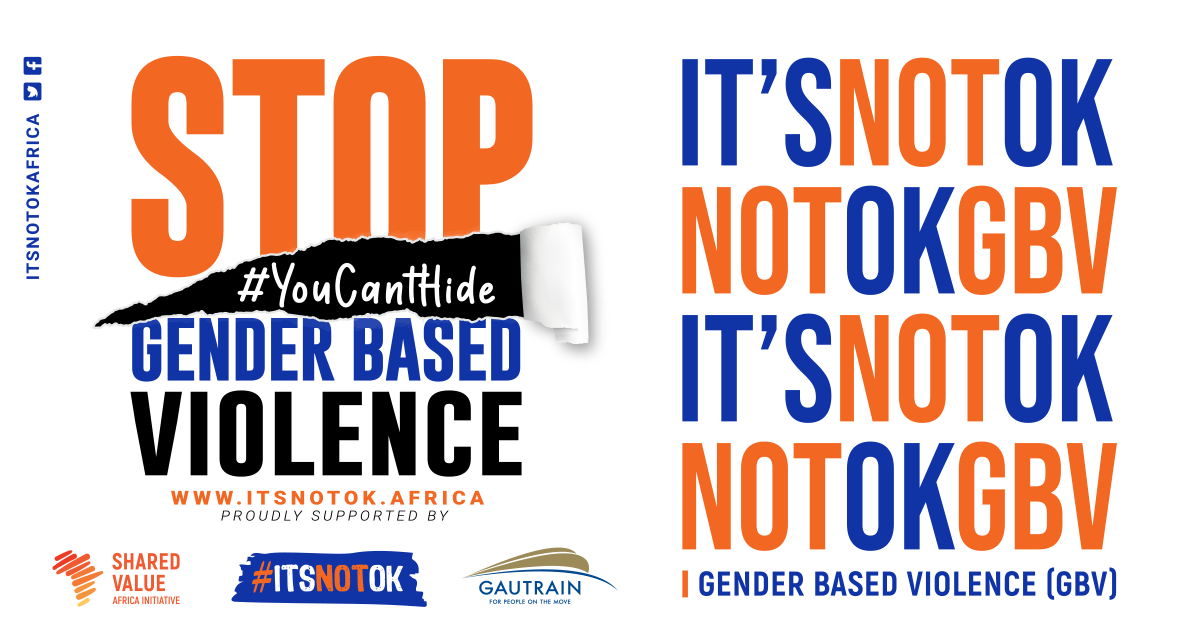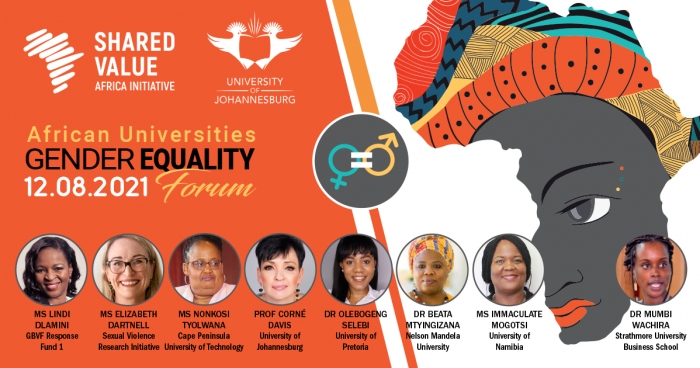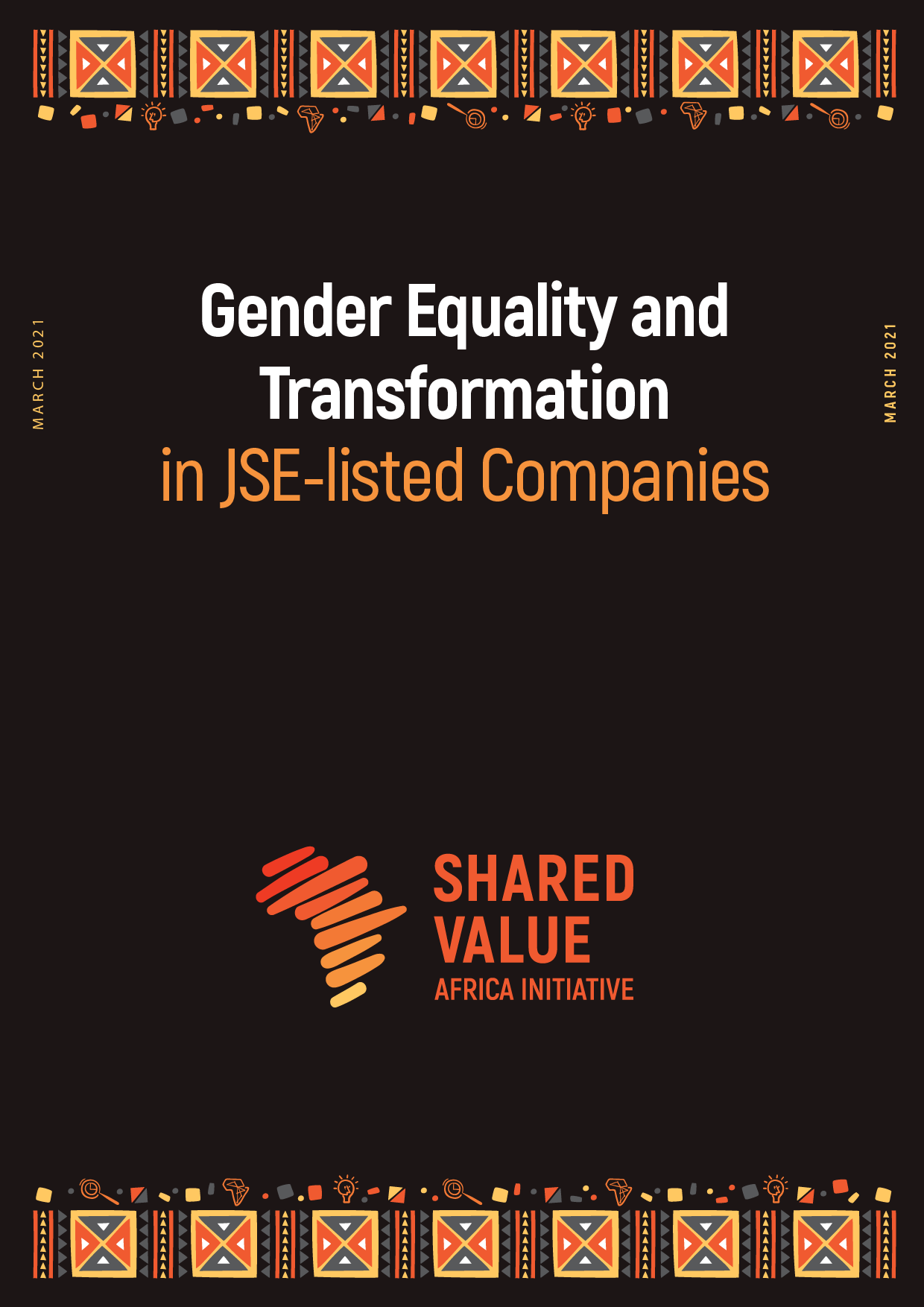A Journey towards Safety for All
As we mark a second Women’s Month since the pandemic began, we take a moment to mark how the SVAI, as an organisation, was moved to act in the fight against GBVF and reflect on this journey.

It was only a few months into global pandemic, when gender-based violence and femicide (GBVF) claimed the dubious honor of being “the second pandemic”. The world was in unforeseen turmoil, that affected all sectors of society, and we had to literally shut down for our own survival.
As South Africa entered level-5 lockdown in 2020 – companies saw their workforce being homebound indefinitely, and expected to not only be productive, but do so in unprecedented circumstances. Add to this the fact that most victims of GBV would now be at home with their perpetrators – with no escape. An issue that was always important become urgent.
Over the years it had become a known fact that as a country, South Africa was already among the leading countries in statistics of violence against women and femicide. Global pandemic was going to exacerbate the situation.
And in June, when a pregnant Tshegofatso Pule was murdered by her boyfriend – a fire was lit in all of us to do more. And so the #ITSNOTOK movement was born in June 2020 – primarily to erase apathy and complacency that had set in in the different sectors of society, where the messages and campaigns had become part of the messaging we saw every Women’s Day and 16 Days of Activism…. But were still not enforcing much change.
In the wake of launching #ITSNOTOK, a movement that was clearly for all to take ownership of and play their part in. Our vision was simple, enable business and society at large to play raise their voices and act towards measurable change. No one person or organisation was to own this movement.
We launched a website, where one could not only pledge their support but also download artwork and messaging to help them craft how to communicate their support – and the site also included to information for those in need of help.
Working with our network of supporters, namely Gautrain Management Agency, JCDecaux Africa, ADreach, we extended our visibility to public areas in and around Gauteng. And soon followed media support by way of radio interviews to outline why we were looking at not just a campaign, but a movement, and how all can participate. Strategically planned webinars throughout the year and into 2021 have helped to not only reinforce the messaging but grow the discussion.
As the saying goes: a problem shared is a problem halved. It was our participation in the government led National Strategic Plan collaborative platform against GBVF that introduced us to a wider community of public, civil and private sector organisations with a similar intention and drive. And we continue to support the pillars of the NSP and bringing in more collaborators to this platform that will drive change across SA.
As discourse progressed around GBVF, its linkages to issues of gender parity became increasingly evident; ensuring an equality empowered workforce, an organisation is also able to tackle key areas of GBVF. Recently, the Shared Value Africa Initiative (SVAI) launched a study report on transformation at executive and board level of the private sector in South Africa, titled Gender Equality & Transformation in JSE-Listed Companies (downloadable here) – shining a light on the status of our own companies.
Another milestone was a partnership initiated with the University of Johannesburg – a research project that is aimed to ultimately guide organisations on key areas of intervention to impact GBVF from within. This partnership set off a few research topics all addressed GBVF and gender parity, led by Prof Corne Davis and supported by a team of 4 associate professors and 48 students.
It continues to be particularly important to focus on business’ potential impact in moving the mark on GBVF. Business, we felt very strongly, has a responsibly to act. After all, when you think of targeting the employee and stakeholder base of business, as a collective, essentially targets most of the citizenry.
So, in business actively finding solutions for the workplace, we wanted to tackle the inhibitors that need to be overcome to fast-track this fight. From policies to advocacy and action, the SVAI wanted to highlight the need for us all to stop being bystanders as individuals and companies, and to take a stand and hold each other accountable. A fundamental cultural change is needed in order to stop this scourge at the root cause, and business has the resources and capacity to do so – beyond just ticking boxes.
Time is past due to accelerate the fight against GBVF and for gender parity. We, as a society, cannot advance and deliver on the economic growth that we need without real progress in addressing gender inequalities. As we challenge ourselves to do so, it means that while companies currently target reaching a 30% minimum in female representation in its leadership, this is not enough. Representation should be more reflective of our demographic: at least 50%.
While we, as the SVAI, continue to keep the discussions going within the broader business community, bringing in perspectives from all levels of the value chain, we want to keep spreading the word that the time for apathy is over, and for us to each look at our immediate networks how we can contribute to a more equitable society, for the benefit of all. Having co-hosted our first “multinational” webinar on GBVF with KEPSA in June, we look forward to continuing to grow the movement across Africa – and creating a continent-wide network to continue to fight GBVF and advance gender parity.
The SVAI will be hosting a webinar on The Role of Academia in Fighting GBVF on 12 August at 10:00 – 12:30 CAT. Register here.

AUTHOR: Vuyo Lutseke, Director and Head of Stakeholder Relations, Shared Value Africa Initiative





